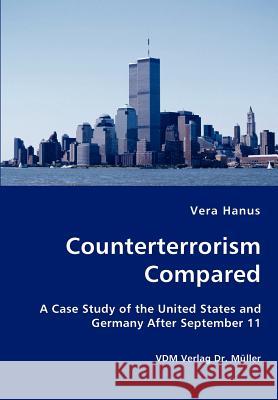Counterterrorism Compared - A Case Study of the United States and Germany After September 11 » książka
Counterterrorism Compared - A Case Study of the United States and Germany After September 11
ISBN-13: 9783836414234 / Angielski / Miękka / 2007 / 116 str.
Counterterrorism Compared - A Case Study of the United States and Germany After September 11
ISBN-13: 9783836414234 / Angielski / Miękka / 2007 / 116 str.
(netto: 213,97 VAT: 5%)
Najniższa cena z 30 dni: 225,91
ok. 16-18 dni roboczych
Bez gwarancji dostawy przed świętami
Darmowa dostawa!
The attacks of 11 September 2001 represented a new terrorist trend whichtargets liberal Western states. The United States and Germany bothinterpreted September 11 as a declaration of war and an imminent securitythreat. However, the two states adopted different counterterrorism conceptsin response to the attacks: The U.S. endorsed a "war" against terrorism,whereas Germany delineated a "fight" against terrorism. Why do somepolicy-makers understand terrorism as a war and others as a crime - whilefacing the same terrorist threat? In this publication the author Vera Hanusexamines why the U.S. and Germany recur to diverging counterterrorismstrategies after September 11. The analysis first traces the difference to therhetorical "frames" and the subsequent "policy frameworks". Secondly, threetheories of International Relations - Neorealism, Utilitarian Liberalism andSocial Constructivist Institutionalism - serve as complex and thoroughexplanatory framework.This case study of transatlantic counterterrorism addresses the academiccommunity, policy-makers, journalists and all those interested in InternationalRelations and the study of terrorism and counterterrorism policy.











